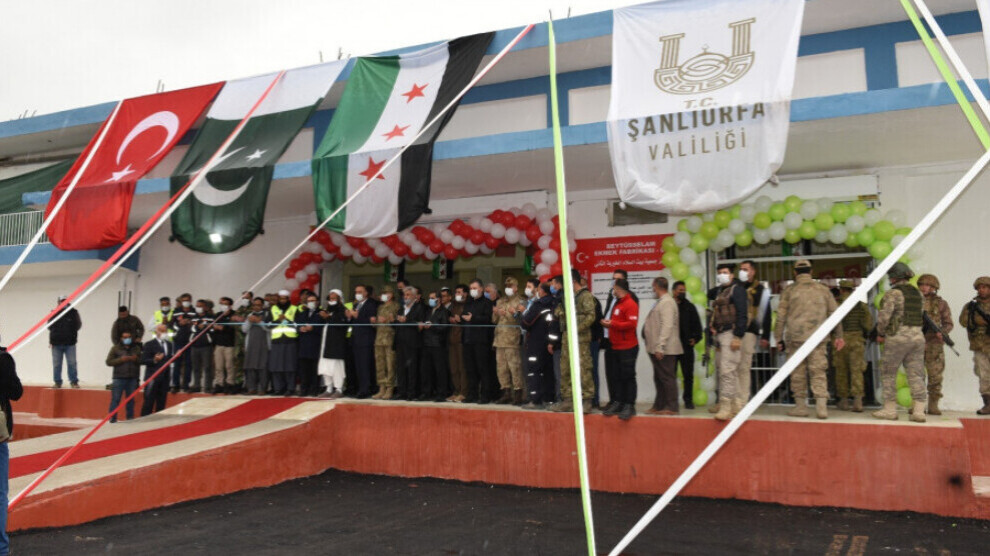Three years ago, the Turkish state occupied the northern Syrian cities of Girê Spî (ar: Tal Abyad) and Serêkaniyê (ar: Ras al-Ain) after brutal attacks. Both towns were almost completely destroyed by the attacks in October 2019. Since the occupation by the Turkish army and its Islamist proxies, multiple war crimes and human rights violations have been committed against the indigenous population in the occupied areas, including forced displacement with the aim of settling the families of Islamist militias there.
As before in Afrin, the Turkish occupiers are also pushing the change of the demographic structure in Girê Spî. More than 100,000 people have been displaced since the occupation of Girê Spî Canton and live under extremely precarious living conditions as refugees in the regions of Raqqa, Tabqa, Ain Issa and the surrounding areas. More than 6,000 people have been accommodated in a reception camp set up by the Girê Spî Cantonal Council in Tell Samin north of Raqqa in 2019.
Land of the displaced confiscated by occupiers
After the Turkish occupiers and their Islamist mercenaries displaced the people, they confiscated the property and land. The entire population has been affected by the war crimes committed by the Turkish state. For example, many schools in the occupied areas have been closed and turned into military bases. As a result, thousands of children and young people cannot go to school.
Erased history: historical sites destroyed, cultural treasures looted
In order to erase the history of the occupied territories, the Turkish state deliberately destroys historical sites and monuments and gives grave robbers the opportunity to loot sites. Images of Ottoman regents and Turkish state presidents are painted on the hills surrounding Girê Spî, visible from afar. The occupiers loot people's belongings in order to drive them away. This is a crime under international law.
ISIS members are deliberately settled in the occupied zone
Since the occupation of Girê Spî Canton, ISIS members and their families who had previously resided in Turkey have been chosen for settlement in the areas whose residents were previously displaced by the Turkish military and Islamist gangs. Islamist militias had previously terrorised the population living in the occupied areas and committed crimes against humanity. After the attack by Turkey, ISIS members moved into the homes of people who had been displaced by the occupiers.
Radical Islamist groups from Pakistan and Shiite sects have set up schools in the occupied zone, run by the Turkish intelligence service MIT. In early June, a visit to these schools by the Mufti of the Muslim Brotherhood, Usama al-Rifai, was documented. The schools were set up to revive Islamist terror in the region and to train the children of ISIS members in this sense.














